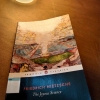In today’s global circumstances, international multilateral economic partnerships have blossomed in every corner of the world. It is believed to ensure [KK1] the interdependency of one country to the next, reduces the risk of global warfare, and significant self-gain. As layers upon layers of agreements are established between countries, stronger ties are forged with the hope that more benefits would be reaped from interconnectedness. However, it must be said that more may not always be merrier, and taking precaution is advised, especially if a country is [AN2] deciding to jump on a moving bandwagon. This is true in accordance [KK3] of the Trans-Pacific Partnership, an issue that has now landed on Indonesia’s lap.
The Trans-Pacific Partnership (TPP) is a multilateral agreement forged between twelve countries mostly centered in the Asia-Pacific region: New Zealand, Australia, Brunei Darussalam, Canada, Chile, Japan, Malaysia, Mexico, Peru, Singapore, the USA, and Viet Nam. The charter itself was released on October of last year, and consisted of thirty different chapters discussing issues from more tariff reductions across the board (including agricultural products) to environmental and labor protection.
There are a number of interesting notes that can be taken from the establishment of the TPP, such as, that despite being started a decade ago by Singapore, Chile, New Zealand, and Brunei, it is evident that the USA has made it into an important focus of their foreign policy,[KK4] and some experts have voiced concerns that the deal is a maneuver to contain China’s ever-growing influence in Asia; thus, Indonesia should be concerned about whether or not the USA will be an overbearing influence on the whole charter.
Certain points in the agreement itself have raised red flags, and should be examined more closely by Indonesia as it considers and reconsiders its membership. Certain controversial articles include those on investor-state dispute settlement mechanisms and intellectual property rights, specifically in the pharmaceutical industry.
The investor-state dispute settlement is a distinctive method as other multilateral economic agreements or organizations such as the World Trade Organization (WTO) is usually known only to cater dispute resolutions between states. This investor-to-state relationship involves an arbitrator, a third presence selected by both disputing parties to untangle the knots. This would potentially be hazardous for cases where a party of lesser influence should face-off against a giant economic and political power.
On the other hand, another issue would be that joining the TPP would mean that pharmaceutical companies will now have prolonged patent durations upon a drug (a significant jump from six years to twenty). This will affect price control and access towards certain new medications, as with the new regulations under the TPP, affordable generic medicine will not be available until those twenty years are up.
With that brief overview upon this new set of rules, a thorough evaluation should be done to ask this million-dollar question, “Is it worth it for Indonesia to join the TPP?” It should be said that there are obvious benefits to joining the TPP, but it is equally important to take note of the equally vital negative impact. Benefits include access to the twelve countries that make up 40% of the world’s economic portion, and this will also mean an injection of high quality products that will drive competition in the country. The TPP also gives attention to smaller-sized businesses and enables them with perks such as information sharing mechanisms to boost their productivity and standing.
However, on the other side of the coin, the flood of high-quality imports is feared to drive national businesses to the ground as we should be concerned whether or not we would actually be able to compete. Indonesia’s Trade Minister, Thomas Lembong, has also voiced his concern as joining the TPP would mean that Indonesia needs to revise twelve regulations, including Article 33 of the 1945 Constitution about government monopoly (if Indonesia does decide to join the TPP, the government can no longer subsidize or have control over certain goods and services that are communally essential such as electricity, water or gas).
Joining the TPP would also risk our geopolitical stance in the face of China. Indonesia’s neutral stance will be replaced with a Western-leaning tendency, and the fact that the charter has been shaped means that Indonesia will have no leverage if changes should be made.
With all of that in mind, it would seem that joining the TPP at this moment would not be profitable to the people of Indonesia. Indonesia itself is already involved in a few multilateral and bilateral economic deals such as those with 7 of the 12 TPP members and the ASEAN Community that is recently coming into force[AN5].
Indonesia would far better to grow, and expand in the agreements that have already been made, as well as, developing our local market by developing small to middle-sized businesses. Although some think we may be missing out on a critical deal, Indonesia itself needs to learn how to increase its skill in juggling with the numerous agreements and charters already on its plate.










